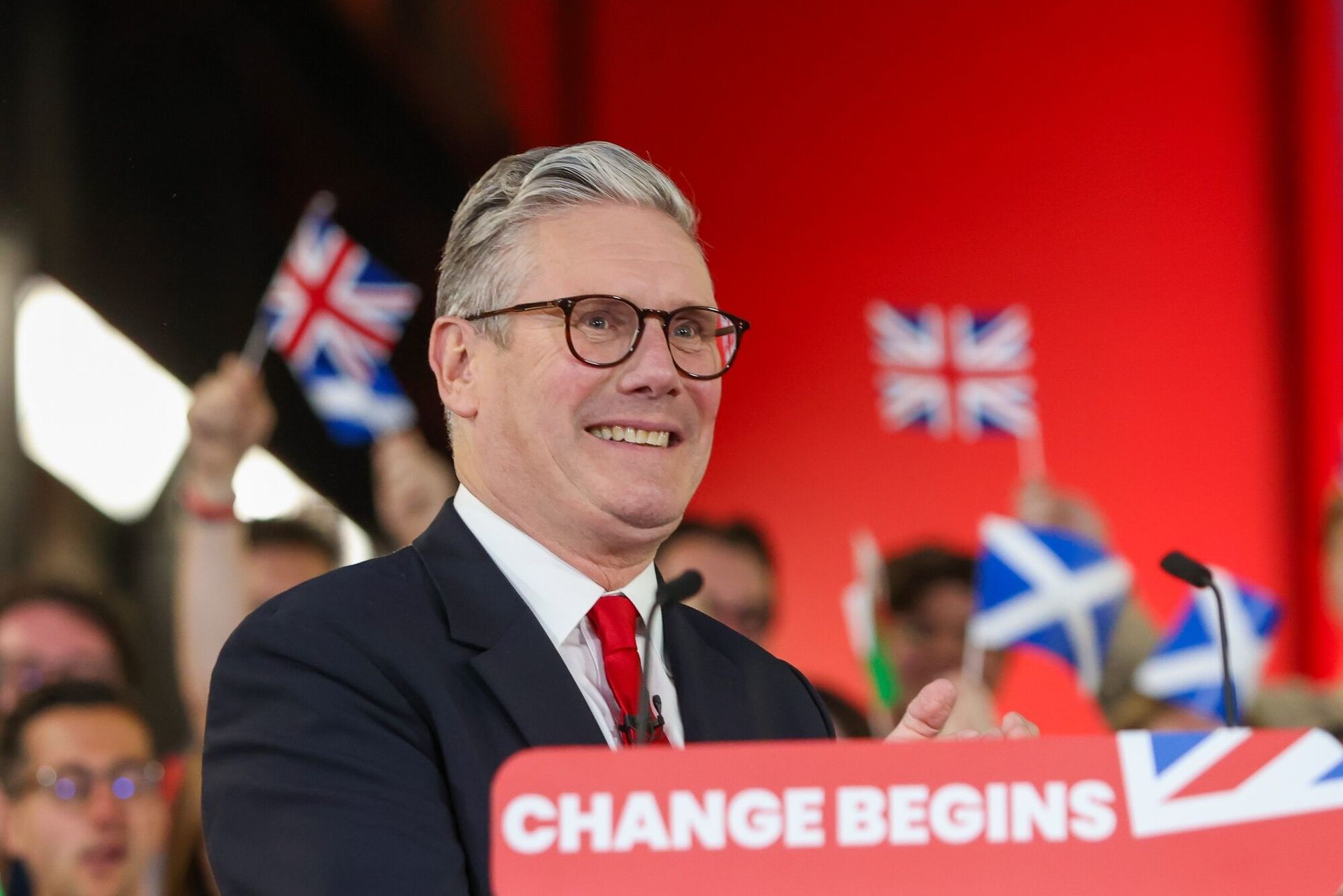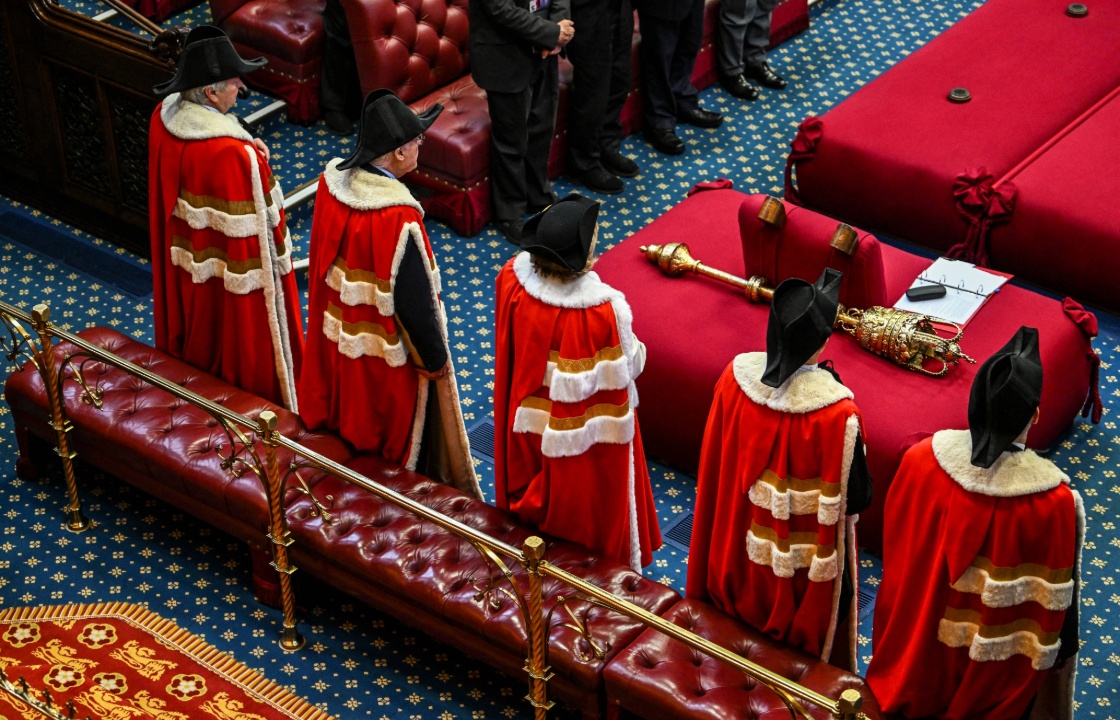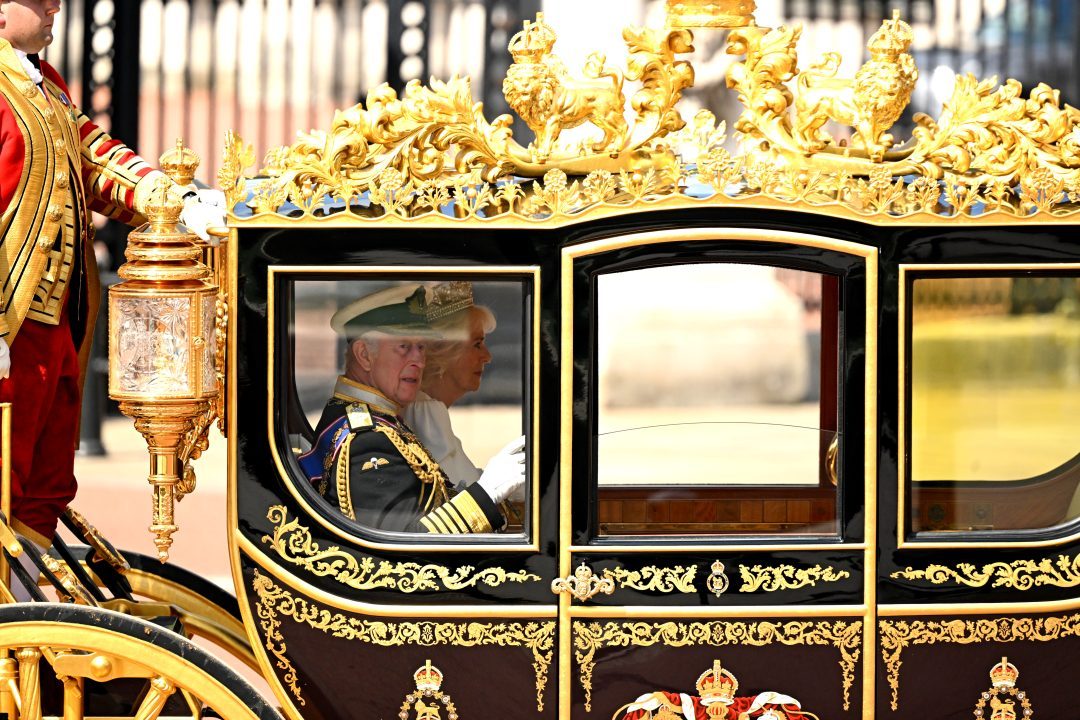Latest updates
-
 King Charles will read out the new Labour government’s plans for the year ahead in a speech to Parliament
King Charles will read out the new Labour government’s plans for the year ahead in a speech to Parliament -
 Ten people have been arrested in Westminster on suspicion of conspiracy to cause public nuisance
Ten people have been arrested in Westminster on suspicion of conspiracy to cause public nuisance
King Charles will read out the new Labour government’s plans for the year ahead in a speech to Parliament on Wednesday.
The speech is expected to outline around 35 draft laws that ministers intend to introduce in the coming months.
It’s a moment the Labour Party has waited 14 years for. Winning a general election is one thing – now, the governing properly gets under way.
Ten members of Youth Demand have been arrested in Westminster on suspicion of conspiracy to cause public nuisance after the protest group stated it planned to disrupt the State Opening of Parliament, the Metropolitan Police said.

Insight Paris Gourtsoyannis Westminster Correspondent
The King’s Speech will set out Labour’s priorities at Westminster for the first year of its government.
We’ll learn which of its policies are at the front of the queue to become law – and which are going to wait, perhaps because the politics are too tricky, even with a huge majority.
National energy company headquartered in Scotland

For Scotland, there’s no mistaking what the big announcement will be: the unveiling of legislation to create a publicly-owned Great British Energy company.
The company will be headquartered in Scotland but operate across the UK.
There’s significant interest in exactly where Great British Energy will be based, particularly in Aberdeen, where the offshore industry wants the HQ to signal the commitment to preserve jobs, as the UK shifts away from fossil fuels to renewables.
That detail will likely need to wait a bit longer, but we already know a fair bit about Labour’s plans for Great British Energy.
It isn’t going to be a retail energy company – you won’t buy your gas and electricity from it or pay it your monthly bill.
Instead, the £8.3bn of public money that will flow from the Treasury into Great British Energy will go towards investing in renewable power projects – everything from cutting-edge hydrogen technology, to tried and tested wind, solar and nuclear power projects.
By boosting development of renewable energy and reducing reliance on volatile imported fossil fuels, the goal is to reduce energy bills by an average of £300 per year.
In the process, Labour says, Great British Energy will create 250,000 jobs across the UK, more than quarter of which will be in Scotland.
What else for Scotland?
 Getty Images
Getty ImagesMuch of the rest of the King’s Speech programme will be focused on areas that are devolved, like housing and justice, so won’t affect Scotland. But there are other elements that will apply.
Another key part of Labour’s offer to Scotland is a so-called “New Deal for Working People”, under which the party has promised to ban zero-hours contracts and fire-and-rehire practices, and ensure all workers get full employment rights from day one of a new job.
There’s been some concern from unions about just how far the legislation will actually deliver on those goals, or whether lobbying by business has watered down the plans.
We’ll need to see the detail of the proposed law, which should be published within 100 days of the government taking office.
Elsewhere, legislation will extend counter-terrorism powers to tackle people smuggling across the English Channel, and abolish the VAT exemption for private schools.
Scotland’s railway is already in public ownership, but the UK’s remaining private rail franchises will gradually be nationalised under the banner of Great British Railways, including cross-border services to England.
Reform for the House of Lords?
 House of Commons
House of CommonsAnd finally, significant constitutional reforms are on the horizon, too. 16-year-olds in Scotland can vote at Holyrood and local elections but couldn’t choose their MP at the general election two weeks ago.
Labour has pledged to change that, as well as introducing automatic voter registration, in a bid to increase election turnout.
For some peers, it could be their last time listening to a King’s Speech – because the government is expected to abolish the last remaining hereditary peers, who sit in the House of Lords thanks to their family titles.
But this is a much less dramatic reform than the one proposed by former prime minister Gordon Brown, in a review that was backed by Keir Starmer just two years ago: to abolish the unelected Lords and replace it with a democratic second chamber of the nations and regions.
There’s doubt over whether that will happen at all in the first term of a Labour government.
It raises the question about just how ambitious these plans are, given that Labour has been waiting a decade and a half to get the chance to unveil them.
When Tony Blair took office in 1997, the last time a Labour government replaced the Conservatives, his first term was dramatic: independence for the Bank of England, devolution for Scotland and Wales, the Human Rights Act, to name just a few headline reforms.
Of course, Keir Starmer didn’t promise drama during the election campaign, quite the contrary. He offered competence and stability – but he also promised change.
And in Scotland, he has just a couple of years to deliver it before voters go to the ballot box again, to decide whether they want a Labour Scottish Government to go with the one at Westminster.
Whether Scottish Labour gets the chance to deliver its own programme for government, depends on how much change this King’s Speech actually brings about.
Follow STV News on WhatsApp
Scan the QR code on your mobile device for all the latest news from around the country





























